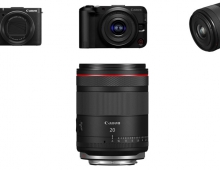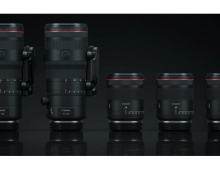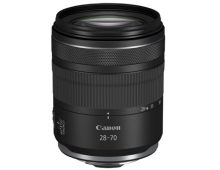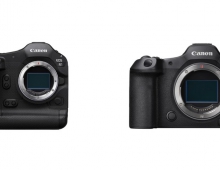
Canon launches MS-500, the world’s first ultra-high-sensitivity camera equipped with SPAD sensor used for colour video shooting
Canon Inc. announced today that the company is launching the MS-500 the ultra-high-sensitivity ILC (Interchangeable-Lens Camera) equipped with the 1” SPAD (Single Photon Avalanche Diode) sensor featuring the world’s highest pixel count of 3.2 megapixels1 in late August 2023.
In areas with extremely high security levels, such as seaports, public infrastructure facilities, and national borders, high-precision monitoring systems are required to accurately capture targets day and night. The new MS-500 camera is the world's first2 ultra-high-sensitivity camera equipped with a SPAD sensor used for color video shooting, achieving a minimum subject illumination of 0.001 lux3. When used in combination with the ultra-telephoto broadcast lenses, it is possible to capture clear videos of subjects at distance of several kilometers even in the nighttime darkness. By strengthening the ultra-high-sensitivity camera's lineup, including the ME20/ML Series4, Canon helps to meet a variety of shooting needs in the advanced surveillance market.
1. Combination of SPAD sensor and broadcast lenses enabling long range surveillance at night
The SPAD sensor uses a technology known as "photon counting", which counts light particles (photons) that enter a pixel. When incoming photons are converted to electric charge, they can be instantly amplified approx. 1 million times and extracted as a large signal, making it possible to detect even small amounts of light. In addition, every single one of these photons can be digitally counted, thus making it possible for noise not to enter during signal readout—a key advantage of SPAD sensors. This enables clear color video shooting even under a 0.001 lux low-light environment. The lens mount is the bayonet lens mount (based on BTA S-1005B standards) which is a widely-used mount for broadcast lenses. Taking advantage of Canon's extensive lineup of broadcast lenses with ultra-telephoto performance, it is possible to identify the subjects at distance of several kilometers even in the nighttime darkness.
2. Featuring image correction functions to improve visibility, including noise and haze reduction
In night monitoring and long range surveillance, the effect of noise and atmospheric shaking, particularly in dark environments, may cause problems within the clarity of the video. To solve this problem, "CrispImg2", which optimizes sharpness, gamma curve, and noise reduction settings for monitoring applications, is installed as a standard feature in the custom picture function that allows for adjusting image quality settings according to the application. This enables to shoot high visibility videos at any time of day or night. The MS-500 also supports “haze compensation” function, which reduces the effects of haze and mist. This automatically adjusts for proper contrast, and provides image correction functions that improve video quality.





















